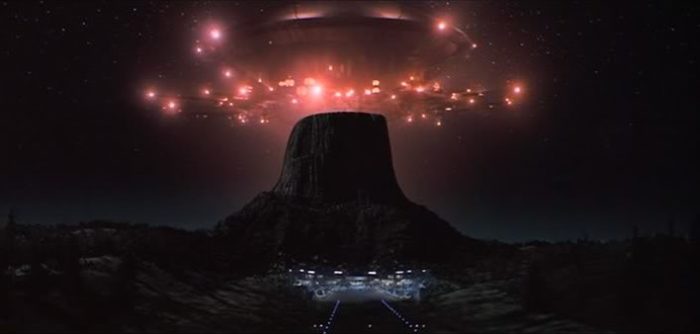What Aliens Teach Us About God, part 7: Tamed Transcendence
Tamed Transcendence is what this article calls an aspect of the desire to have contact with aliens. Human beings long for something greater than ourselves–yet when we put aliens in the place to fill that gap, we wind up settling for a weakened form of transcendence.
This observation stems from a response to last week’s post, a post which talked about how seeing the universe as empty and longing to meet aliens there reflects a longing for God, because the universe is not in fact empty–the presence of God is everywhere. The comment by Parker J. Cole raised an issue I found so important, I postponed the planned part seven of this series and inserted an additional post. Quoting part of what she said:
…the aliens we’re hoping to meet, and create treaties with, are not really alien. God, in His perfection, holiness, wisdom, power, is truly ALIEN. Under the light of His glory, what we are becomes apparent — broken, flawed, sin-filled. Due to his ALIEN nature — His love, His judgment, His wrath, His forgiveness, and His patience, we are left to think “Why would He create me or be bothered with me? What makes me so special?”
This quote says something true about God, something this series has pointed out: God is not human. God’s nature is truly different from you and I and any human being, even though we are created in his image. Though perhaps it would be useful for the moment to return to the standard theological term used to express just how different God is from human beings–transcendence.
God is transcendent, beyond what human beings are capable of fully grasping, of a fundamentally different nature than we are, even though we reflect a part of his essence. I believe something in human beings longs for the grandeur of transcendence and a desire to find God.

Meeting the aliens in Close Encounter of the Third Kind
Human beings who long for alien contact generally want a form of transcendence, which I’d say is a substitute for the innate desire to know God. They want the aliens to be mind-blowing and mysterious, at least a little. They would not be very happy to meet human beings in space who are exactly identical to human beings on Earth in every way. They long to find something out there that’s unlike what we have here on Earth, something stranger. But as seen in the classic alien-encounter movie Close Encounters of the Third Kind, they expect the strangeness to settle down as we actually get the chance to meet the aliens. Or as in Arrival, the aliens may seem incomprehensible, but our best and brightest minds will be able to eventually figure them out.
Relative to the transcendent God, this form of transcendence is a cheapened version, one that does not challenge who we are and who we should be as human beings. The transcendence derived from meeting aliens is transcendence in a cage, allowed to be big and scary, but it cannot really affect us–it cannot scare us into changing who we are. It’s a transcendence tamed and under control.
There is of course another kind of alien encounter in fiction–one in which the aliens are dangerous but not transcendent at all. In which we human beings are called on to fight for our lives–but which still does not call on us to see ourselves as needing to be different from who we are now.
Parker was correct to point out that the desire to find aliens in the skies is really about finding somewhat different versions of human beings, different mainly in physical form. Aliens in much of science fiction come in different colors or have fins or feathers or fur or scales or glowing sources of light instead of our flesh–but otherwise are basically like us. They are seen as having evolved as we are believed to have evolved. They may have learned to overcome death, but they once died just as we do. And most importantly, they have no right to have real moral authority over us. They not only have no right to tell us how to behave, they probably would not be very interested in our moral behavior in the first place (though there are occasional exceptions to this in science fiction, as seen in The Day the Earth Stood Still).

Yondu
We humans may long for the haunting, mysterious music and strangeness found in Close Encounters of the Third Kind, but what we wind up creating is something more like the opening scene of Guardians of the Galaxy (especially in the last minute of the linked clip), in which we find a boy caught up into an alien ship that seems weird and mysterious. But we find out eventually that it’s piloted by Yondu, a blue-skinned space redneck.
We human beings so often long for transcendence, but are not prepared to accept a transcendence that’s profoundly uncomfortable. Many of us desire to find out that the universe is not empty–but we deny that what we find there is beyond human grasp. Even many concepts of a Creator God are guilty of this–guilty of taming God by imagining him to be simplistic and essentially human.
And yes, as Parker said, that strange being out there, that untamed transcendence, which deserves to be called “alien” in a way that can never apply to Yondu, actually cares about us. Transcendence reaches out to us, to the puny inhabitants of Planet Earth. And bizarrely, lets us decide whether we will respond to him or not.
What are your thoughts on Parker’s comment? On transcendence? On aliens? Other comments?












































I feel special Travis. I’ve enjoyed this series so much. I’m glad something I said inspired an additional post. You could do a twenty-part article series on this and scratch the surface.
One comment I’d like to add, and using the lesser term of ‘alien’ to make a point while inserting the example of the movie ‘Arrival’ is this: In the movie, the aliens are truly different (besides the tentacles–I think Hollywood’s running out of ideas for weird alien body parts) in their understanding of time and communication. However, moviegoers found that easy to grasp. It goes back to your point about wanting the aliens to be a little mindblowing, a little mysterious.
Yet, our heads and brains explode at the concept of a triune God. How many people have objected to the trinity because they don’t get it? The ‘three in one’. God the Father, God the Son, and God the Holy Spirit. We can only mimic Psalms 139:6 “Such knowledge is too wonderful for me; it is high, I cannot attain unto it.” People have rejected this ‘alien’ aspect of God. Sure, it’s hard to understand but without it, there are certain concepts we wouldn’t grasp without it.
In particular with regards to Time. Time, in my simplistic view of understanding, is made up of the past, the present, and the future. A point that moves forward from a moment (the Parker paraphrased western view) or a circular web that comes back around (the Parker paraphrased eastern view). But regardless, it’s made up of these elements. Yet, it’s understood that the past is the past, the present is the present, and the future is the future. Each of these elements flow along this thread we call time. Each element is distinct although they are fluid with each other.
However, without the triune God, the ‘ALIEN’ aspect of His nature, Time would be unfathomable. And hey, that’s just ONE, ONE aspect of the transcendence of God. What else do we understanding, even on a primitive level we wouldn’t understand without the ‘ALIEN’ nature of God permeating every aspect of existence?
Parker, so true. God has aspect that are truly mind-blowing.
Modern physics shows the universe to be very complex and has aspects human minds cannot fully grasp. Which lends credence to the truth that the transcendent God is ultimately the author of the universe–rather than the universe generating itself out of nothing.
Excellent observations! This is something I’ve observed, too … we want aliens, but we don’t want them to demand holiness. In fact, in Footfall by Larry Niven, the swinging, immoral humans are horrified by the moral, monogamous aliens and the idea of monogamy being imposed upon humanity. It caused a real disconnect for me, because I was supposed to be rooting for the humans … but the humans were disgusting. I much preferred the aliens and their political divisions.
But yeah, I think Revelation can be seen as the ultimate alien invasion story. An outside, alien force is judging the sinfulness of mankind. And mankind is fighting back with everything it has, lead by its intrepid world leader. In the end, Earth is reduced to a wasteland, all the trees and grass destroyed, the ocean turned to blood (a red tide?), the mountains flattened. It’s totally science fiction at its finest.
Revelation certainly does sound like science fiction at times! I wrote a personal blog post a while back (in 2013) in which I full developed your “And mankind is fighting back with everything it has, lead by its intrepid world leader” concept.
You might find my post interesting:
http://travissbigidea.blogspot.com/2013/02/alien-god-of-christian-rapture.html